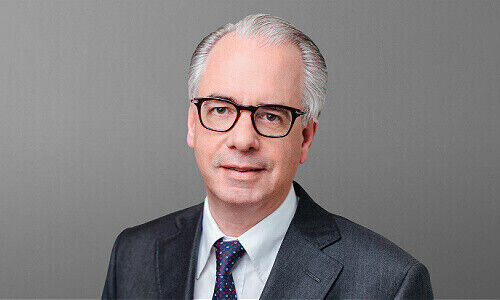Credit Suisse's new CEO wants to break new ground with the bank's securitization business. That's not so easy seeing as the unit is as risky as it is lucrative.
CEO Ulrich Koerner doesn't plan to unveil his strategy adjustment for Credit Suisse until fall, yet speculation around his plans is already dragging the crisis-ridden institution back into the headlines.
This time the talk revolves around Credit Suisse’s investment bank, also referred to as the «ugly duckling» within the bank, as «Bloomberg» reported.
Last July, Koerner hinted that he was examining strategic options for the securitized products group (SPG). One possibility, as he suggested at the time, was to inject external capital into the platform.
However, there is also talk of the bank selling the unit, albeit neither Koerner nor Credit Suisse have ever confirmed such rumors.
Cash Cow?
In the past, the unit, which securitizes credit papers such as mortgages or credit card debt and resells them as new securities, has repeatedly proven to be highly risky for the bank as it ties up a lot of capital with a quarter of the risk-weighted assets of the entire investment bank division.
Yet Credit Suisse has always been heavily involved in this business and has earned well from it. According to estimates, the division has generated around 20 billion dollars for the group over the past ten years.
Times of Panic
The institution's ambivalent relationship with its investment bank unit was most recently on full display during the era of Credit Suisse's penultimate chief executive, Tidjane Thiam. By all accounts, the Franco-Ivorian panicked at the end of 2015 when securitization positions, of which he had little knowledge until then, became illiquid and threatened to cause billions in losses for the bank's trading unit. This was after the same securities had been praised as profitable shortly before.
Thiam responded by making immediate and repeated writedowns totaling $1 billion - after which he had to ask shareholders for a capital increase and fired trading chief Tim O'Hara.
Hasty Reaction?
At the time, however, more than a few voices thought that Thiam had reacted hastily. If he had waited with the sales until the necessary liquidity was available again on the markets, the write-downs could have been at least partially avoided.
In retrospect, Thiam's «immediate action» on securitizations looks even stranger. That's because, as «Bloomberg» reported, SPG was allowed to buy up a billion-dollar portfolio of problem loans from Fannie Mae back in 2017.
In the years that followed, the bank's unit acquired mortgage holdings of around $27 billion from the U.S. government mortgage lender - more than any other investment bank.
Opinion Pivot
Within months, the extremely risk-averse attitude of the bank's management with regard to SPG turned 180 degrees. Possibly because they didn’t want to do away with the bubbling revenues from this area.
In view of the bank's recent three consecutive losses, Koerner will unlikely be keen to give up SPG so easily.
The contribution of external capital that he has already outlined seems to be a viable compromise. Removing the unit from the Group and placing it in a joint venture with a third party would be one way of keeping the «ugly duckling» not too far away from Credit Suisse's nest.

























